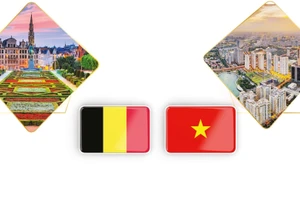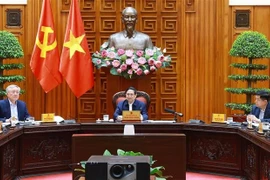Hanoi (VNS/VNA) - Despite having achieved a record export sales figure in February, Vietnam's tuna industry faces significant regulatory challenges from its key import markets such as the EU and the US, according to the Vietnam Association of Seafood Exporters and Producers (VASEP).
Statistics from Vietnam Customs show that the value of tuna exports in February reached nearly 73 million USD, which marks a 41% increase on-year and the highest level for the same period over the past five years.
The cumulative tuna export value for the first two months of the year has surpassed 139 million USD, a 6% increase compared to the same period last year.
Statistics from VASEP showed that fresh, frozen and dried tuna products continued to show strong growth in February, up 23% on-year. In contrast, exports of processed and canned tuna decreased by 9%.
Large markets such as the US, EU, Canada and Japan showed the most impressive growth in Vietnamese tuna exports last month.
However, the tuna industry is facing numerous challenges this year in terms of resource exploitation and trade regulations from some of its major export markets, according to VASEP.
Regulations on preventing illegal, unreported and unregulated (IUU) fishing continue to be a major barrier for seafood harvest, including tuna.
The requirement for tuna to be at least 500 millimetres long before it can be harvested, regulated by Decree 37 issued by the Government last year, remains a challenge for fishermen and businesses, hindering them from obtaining raw tuna and exporting processed and canned tuna products.
Similarly, the US’s implementation of the Marine Mammal Protection Act (MMPA) requires exporting countries to prove that their fishing processes do not harm marine mammals, and that their management regulations are similar to those of the US.
Twelve of Vietnam's fishing methods including the use of gillnets, purse seines, dragnets and handline fishing are not recognised as meeting this requirement, in a recent preliminary decision made by the US National Oceanic and Atmospheric Administration (NOAA).
The organisation has issued a warning that it may ban the import of several types of Vietnamese seafood from January 1, 2026, unless Vietnam takes timely action.
Additionally, the US plans to expand its Seafood Import Monitoring Programme (SIMP), which requires importers to provide more detailed information on their imports and increases compliance costs.
“MMPA and SIMP regulations could have a substantial impact on Vietnam's seafood industry, even threatening the country's reputation and standing in the international market,” VASEP stated.
To overcome these challenges, the tuna industry needs strong support from authorities and industry managers in improving legal frameworks, enhancing monitoring capabilities and assisting fishermen in complying with international standards, it said./.
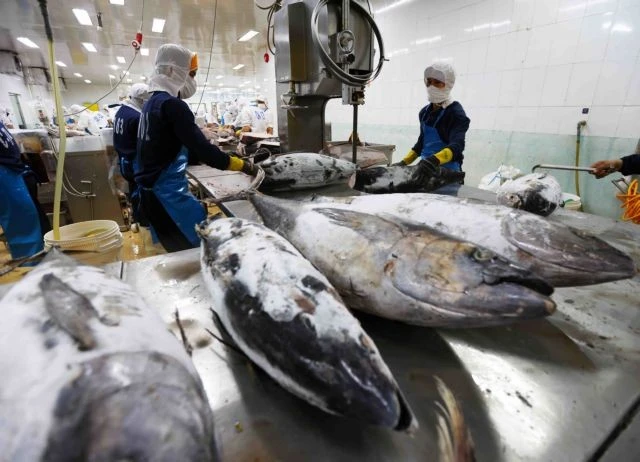
See more

Vietnam Airlines launches direct service to world’s largest airport in China
Vietnam Airlines plans to open and resume 15 international flight routes in 2025, continuing to expand its flight network to countries such as Italy, Denmark, the Middle East, Russia, and China
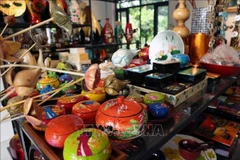
Hanoi boosts economy through craft village development
Hanoi is implementing various initiatives to develop local craft villages.
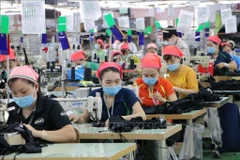
Vietnam’s garment-textile industry stitching a greener, smarter future
Supported by 17 next-generation free trade agreements (FTAs) already in effect, the industry is poised for further growth, targeting 48 billion USD in export revenue this year.

First charter flight from Iran lands in Hanoi, boosting tourism ties
Charter flights offer a swift, direct connection between the two nations, unlocking potential for broader cooperation in aviation, trade, culture, and education.

PM urges completion of North-South expressways by year-end
Chairing a meeting between permanent Government members and inspection teams for expressways nationwide in Hanoi on March 29, PM Chinh, who is also head of the State Steering Committee for Key Transport Projects, stressed that achieving a growth rate of at least 8% in 2025 and double-digit growth thereafter hinges on public investment.
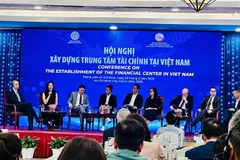
Vietnam develops roadmap for establishing international financial centre
Speaking at a conference on creating a financial centre in Vietnam on March 28, Minister of Finance Nguyen Van Thang said Vietnam is “on the brink of a golden opportunity” to establish itself as a key player in the global financial arena.
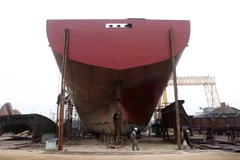
Ample room to float Vietnam’s shipbuilding industry
As domestic and global demand for new ships continues to rise, Vietnam's shipbuilding industry has significant potential for growth.

Dong Nai approves planning for 3 billion USD urban area project
Located along the Dong Nai River, the 293-hectare Hiep Hoa Urban Area project in Bien Hoa city, Dong Nai province will feature a new urban complex with a low population density, modern infrastructure, and a harmony with nature. The development will also focus on sustainable tourism, offering a mix of residential areas, commercial-service housing for tourism, ecological villas, and public services.
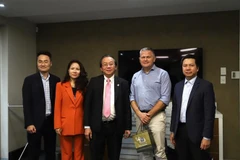
Vietnam, South Africa eye stronger air logistics links
While South Africa’s aviation logistics sector plays a crucial role in its economy, Vietnam still has significant potential for development, particularly in air freight.
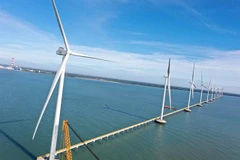
Tra Vinh approves investment policy for five more wind power projects
The Tra Vinh provincial People’s Committee has given the green light to the investment policy for five wind power projects, for an investment total of over 13.8 trillion VND.
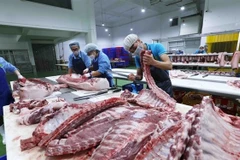
Deputy PM requests investigation into record high pork prices
Pork prices reach as high as 80,000 VND (3.14 USD) per kilogramme in some localities, which is the highest level in the last five years.

Dong Nai holds dialogue with FDI enterprises to ease difficulties
At the event, businesses raised concerns related to value-added tax refunds, increased land rental costs, reduced LNG supply, labour shortages, the issuance of construction ownership certificates, and environmental hygiene and traffic safety on roads within industrial zones.

Green Future powers green tourism in Da Nang with 1,000 electric vehicle lease
Under the deal, GF will initially deliver 300 VinFast EVs to First Real to jointly advance sustainable tourism, providing visitors with eco-friendly and convenient transportation options. The remainder will be handed over within this year.

Binh Dinh approves 62 investment projects worth over 9 billion USD
With a sound investment climate, Binh Dinh has become an attractive destination for investors, positioning itself as one of the most dynamic economic hubs in the country, and a leading development province in the region.

Viettel’s new member aims to exploit customer service market
Viettel Customer Service is a technology company focused on customer services, offering end-to-end solutions including consulting, design, software development, and human resources.
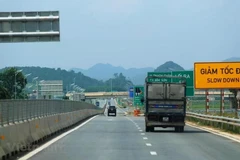
Over 6.2 billion USD needed for expanding North-South expressway
The Ministry of Construction has proposed expanding the 1,144-km eastern wing of North-South expressway from Hanoi to Ho Chi Minh City from four to six lanes, at an estimated cost of 152.1 trillion VND (around 6.2 billion USD).
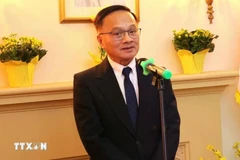
Vietnam-Canada Business Association expands operation
The establishment of the Eastern Chapter not only marks a significant step in the Vietnam-Canada Business Association's growth but also addresses the rising demand for networking and collaboration among Vietnamese and Canadian entrepreneurs in the region.
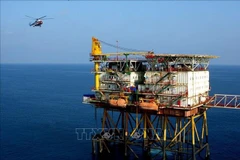
📝OP-ED: Apparatus streamlining and SOEs’ leading role
Currently, in Vietnam, there are more than 670 SOEs, with about two-thirds wholly owned by the state. In the remaining ones, the state holds more than 50% of the charter capital.
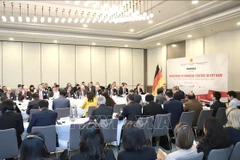
Int’l financial centre ensures Vietnam’s sustainable financial growth: Experts
Financial experts expressed their willingness to share knowledge, expertise, and support Vietnam’s access to vital capital, while as assisting Vietnam in training and recruitment of highly skilled financial professionals to ensure the swift and effective development of the financial centres. Additionally, they committed to connecting Vietnamese businesses with German and international investors.
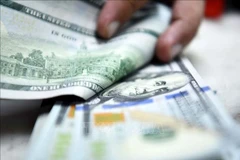
Reference exchange rate falls 3 VND on March 28
The State Bank of Vietnam set the daily reference exchange rate for the US dollar at 24,843 VND/USD on March 28, down 3 VND from the previous day’s morning.



